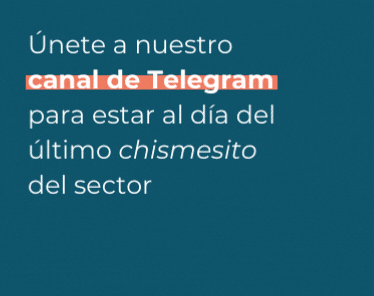In the context of the antitrust trial against Meta, Adam Mosseri, CEO of Instagram, took the stand to share his perspective on competition in the social media market, the company’s internal strategic decisions, and his views on rivals like TikTok and X-Twitter.
This case stems from an antitrust lawsuit filed by the U.S. Federal Trade Commission (FTC) against Meta (still called Facebook at the time of the events under review), alleging that Meta acquired its rivals Instagram and WhatsApp to build a monopoly in the social media market. The lawsuit aims to force Meta to sell Instagram and WhatsApp.
In the same trial, a few days ago, Meta’s CEO Mark Zuckerberg denied wanting to eliminate competition by acquiring these apps. He stated that he liked Instagram’s photo and camera experience and didn’t see it as a direct competitor. Regarding WhatsApp, he said its founders were “not ambitious” in maximizing its impact, and Meta invested resources to grow both platforms.
As you might imagine, Mosseri’s juicy statements are not only legally significant but also provide a precise x-ray of the challenges and ambitions of the Menlo Park giant and its view of the current social media landscape.
Instagram: between friends and entertainment
One of the central questions of the trial is whether Meta truly competes in a market limited to connecting friends and family, as the FTC claims, or if it belongs to a broader digital entertainment ecosystem.
The FTC (Federal Trade Commission) argues that Meta — through Facebook and Instagram — dominates the “personal social networking market”, a space centered on communication among friends and family. According to this view, by acquiring or eliminating potential competitors in that segment (such as Instagram or WhatsApp), Meta has built a monopoly that stifles innovation and harms consumers. This argument is reinforced by a directive from Mark Zuckerberg sent via email to Mosseri in 2018, where Zuckerberg explained that even as public content was growing, “Instagram could never be just for public figures or it would cease to be a social product.”
Meta, on the other hand, with support from Adam Mosseri’s testimony, seeks to broaden the market definition: it argues that it no longer competes only with traditional social networks but also with digital entertainment platforms like TikTok, YouTube, and even Twitter/X, where the focus is less on personal relationships and more on viral content, creators, or algorithms. Thus, Mosseri argued that Instagram has evolved by combining social interaction and public content, pointing out that activities like commenting on a sports post and then interacting with friends in the comments remain a core part of the experience.
Threads: from feature to standalone app
One of the most talked-about moments in the testimony was the explanation about Threads, the app launched as a competitor to Twitter. According to Mosseri, it was initially conceived as a feature within Instagram, but the team decided to make it a standalone app due to structural differences: “In Threads, replies are as important as original posts, which is hard to integrate into Instagram’s usual flow.”
The decision was highly debated internally, but it reflects Meta’s recognition of the need to create products with their own logic to face direct rivals.
TikTok: Instagram’s biggest threat
Mosseri did not hesitate to acknowledge that TikTok is the fiercest competitor Meta has ever faced, “a major concern”. In fact, he explained that according to internal estimates, up to 40% of the decline in Instagram usage time in 2019 was due to TikTok.
The launch of Reels, Instagram’s short-form video feature, was a direct response to this challenge, although the CEO admits its initial implementation was a mistake, since it was built on the Stories infrastructure: “We should have been more aggressive.”
The CEO also pointed out that TikTok is no longer a passive platform but has become “as participatory as we are”, highlighting the paradigm shift Instagram faces in the battle for user attention. He even added another competitor to the mix, explaining that as YouTube leans into Shorts, “it brings them closer to us.”
Against the FTC’s narrative that Instagram and Facebook dominate the social market, Mosseri argued that the landscape is much more diverse, with TikTok, YouTube, and other platforms gaining ground. He even noted that TikTok has a friends tab which, according to earlier testimony by a TikTok executive, accounts for only about 1% of videos viewed on the app. This supports the idea that TikTok operates in a different market, more focused on entertainment.
Finally, Mosseri didn’t hold back in criticizing the Chinese competitor, stating that “TikTok is notoriously lax with its data”, referring to the reliability of its stats and privacy standards, a recurring concern among Western regulators.
Growth, obsession, and saturation
One phrase captures the company’s philosophy well: “Either you’re growing, or you’re slowly dying.” Mosseri explained that growth is everything for Meta and confessed that 2019 was a turning point, with declining feed impressions and stagnating engagement in Stories. Despite partially reversing the trend, he admitted that the proportion of friend-generated content has decreased since then, though it remains essential.
The focus on content creators is another key lever. Instagram has invested up to $700 million in a single year in creator incentives, aware that they drive fresh content creation after a drop in conventional user posts. However, Mosseri clarified: “I’ve never met a creator who didn’t think their content deserved more reach,” acknowledging the saturation of the ecosystem.
Difficult decisions: safety, Messenger, and internal tensions
Mosseri also reflected on his first months leading Instagram. Although he initially promised not to make changes, he broke that promise when it came to safety and integrity, areas where he pushed integration with Facebook’s teams. “It was painful. I lost credibility with part of the team,” he admitted.
Another revealing passage places him in the middle of tensions with Instagram’s founders, Kevin Systrom and Mike Krieger, especially regarding the pace of integration with Facebook and fears of slowing the app’s growth. An internal email showed how Mosseri acted as a mediator between Zuckerberg and the founders.
Image: Flux Schnell
This post was originally published on this site be sure to check out more of their content









